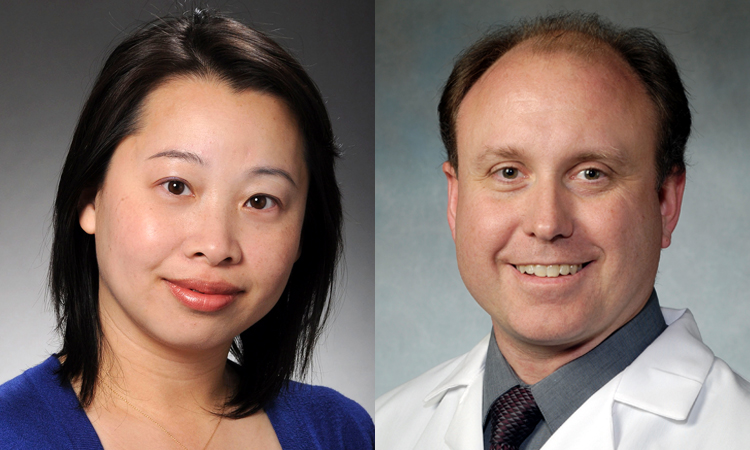A recent Grand Rounds event at the Kaiser Permanente Bernard J. Tyson School of Medicine brought together students, faculty, and staff for a case-based discussion on the use of artificial intelligence (AI) in clinical diagnostics. Held on the Convening Stairs and streamed online, the event featured Dr. Gurpreet Dhaliwal, a nationally recognized expert in diagnostic reasoning, and Dr. Daniel Yang, Vice President for AI and Emergent Technology at Kaiser Permanente.
The session provided a unique opportunity to compare and contrast how an experienced clinician and an AI tool would each approach the same complex case, offering insights into the complementary strengths and limitations of both.
The focus was a case involving a 22-year-old woman with diffuse body pain, fatigue, and nausea following the placement and removal of an intrauterine device (IUD). Dr. Dhaliwal approached the case using traditional clinical methods, narrowing the differential diagnosis through structured reasoning based on symptom patterns, medical history, and physical findings. At the same time, Dr. Yang used an AI chatbot, Copilot, to analyze the case. The tool produced a differential diagnosis that included fibromyalgia, autoimmune syndromes, and somatic symptom disorder. It also surfaced less common possibilities, such as an immune-mediated reaction to the IUD, and suggested additional diagnostic steps.
The session demonstrated several potential benefits of AI in medical decision-making, including the ability to quickly synthesize large volumes of information, provide second opinions, and highlight overlooked symptoms. Copilot, for example, flagged the patient’s nausea as a detail that warranted further attention.
The discussion also addressed the tool’s limitations. Some suggestions, such as “ASIA syndrome,” required clinical interpretation and raised concerns about the inclusion of controversial diagnoses. Both presenters emphasized that AI should support—not replace—clinical judgment, particularly in cases where data is incomplete or ambiguous.
Dr. Dhaliwal noted, “AI couldn’t go any deeper than that. I think that’s reasonable given the data we have.”
The event highlighted the importance of integrating emerging technologies into medical education while maintaining a strong foundation in clinical reasoning. KPSOM continues to explore how tools like AI can enhance learning and support diagnostic excellence in future physicians.

.jpg)
